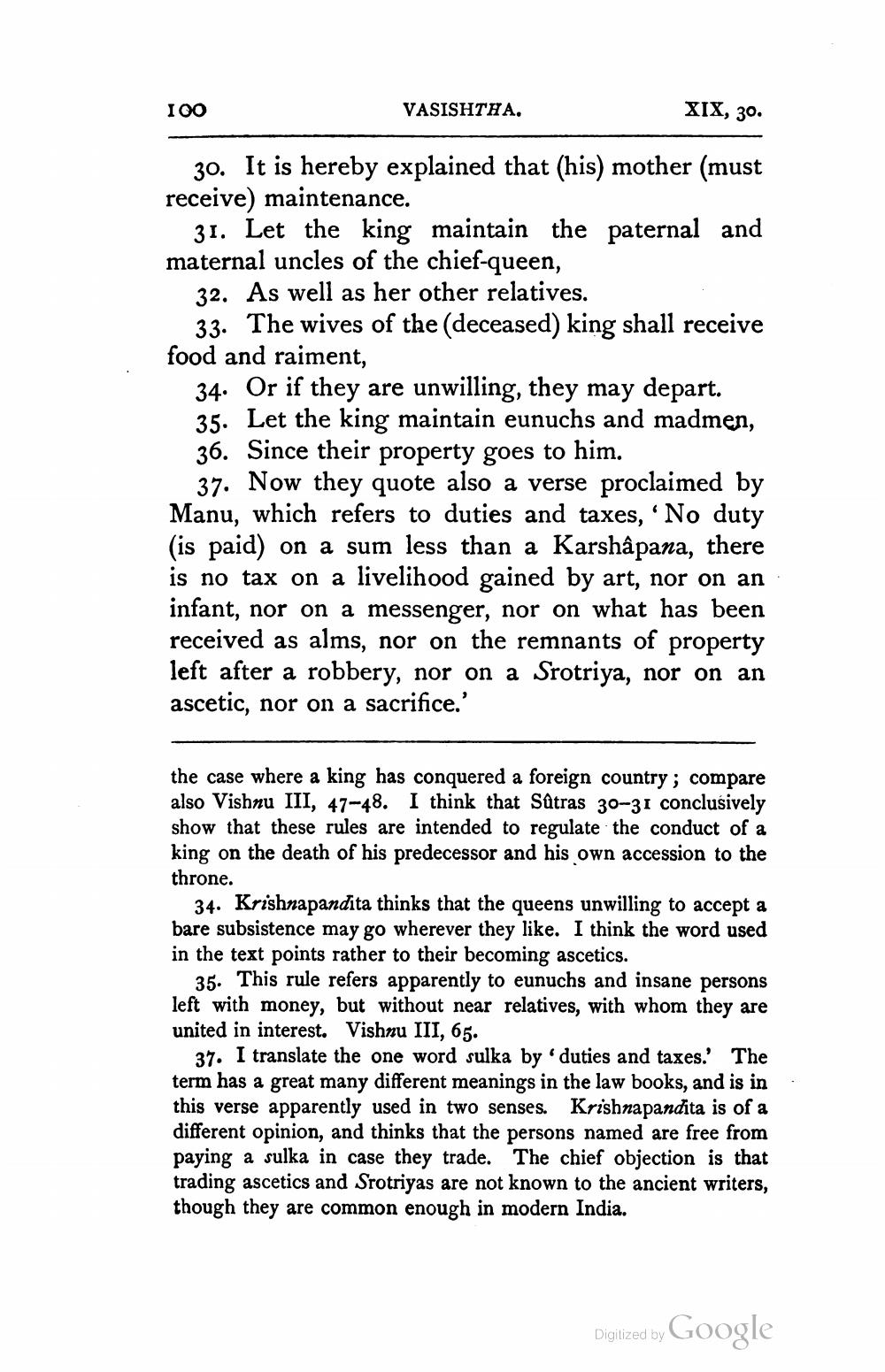________________
IRO
VASISHTHA.
XIX, 30.
30. It is hereby explained that (his) mother (must receive) maintenance.
31. Let the king maintain the paternal and maternal uncles of the chief-queen,
32. As well as her other relatives.
33. The wives of the deceased) king shall receive food and raiment,
34. Or if they are unwilling, they may depart. 35. Let the king maintain eunuchs and madmen, 36. Since their property goes to him.
37. Now they quote also a verse proclaimed by Manu, which refers to duties and taxes, 'No duty (is paid) on a sum less than a Karshậpana, there is no tax on a livelihood gained by art, nor on an infant, nor on a messenger, nor on what has been received as alms, nor on the remnants of property left after a robbery, nor on a Srotriya, nor on an ascetic, nor on a sacrifice.'
the case where a king has conquered a foreign country; compare also Vishnu III, 47-48. I think that Sätras 30-31 conclusively show that these rules are intended to regulate the conduct of a king on the death of his predecessor and his own accession to the throne.
34. Krishnapandita thinks that the queens unwilling to accept a bare subsistence may go wherever they like. I think the word used in the text points rather to their becoming ascetics.
35. This rule refers apparently to eunuchs and insane persons left with money, but without near relatives, with whom they are united in interest. Vishnu III, 65.
37. I translate the one word sulka by duties and taxes.' The term has a great many different meanings in the law books, and is in this verse apparently used in two senses. Krishnapandita is of a different opinion, and thinks that the persons named are free from paying a sulka in case they trade. The chief objection is that trading ascetics and Srotriyas are not known to the ancient writers, though they are common enough in modern India.
Digitized by Google




